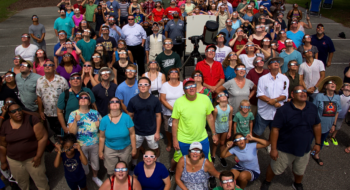If you witnessed a life-threatening emergency, would you know how to help someone in need of CPR?
Knowing how to perform CPR could help you save someone’s life, which is why Tidelands Health, in partnership with the YMCA of Coastal Carolina, offers Heartsaver CPR, a four-hour CPR course for everyday people. Participants learn basic pediatric and adult CPR, how to respond to choking, basic first aid and how to use an automated external defibrillator (AED).
“We need as many people as possible who know what to do if someone needs CPR,” says Layne Woodward, a registered nurse clinical care manager at Tidelands Health community health resources and Heartsaver CPR instructor. “Anyone can learn how to do this.
“The more people who can perform CPR, the better the outcomes for people who suffer cardiac arrest,” Woodward adds.
Cardiac arrest vs. heart attack
During cardiac arrest, the heart stops and no longer pumps blood to the brain, lungs and other organs.
Cardiac arrest is not the same as a heart attack, which occurs when blood flow to the heart is blocked. A person having a heart attack can still talk and breathe and does not need CPR, although they do need immediate emergency medical attention. Heart attack increases the risk for going into cardiac arrest.
Here are five benefits of CPR training:
1. You could save the life of a loved one
Most people who suffer a cardiac arrest do so at home, Woodward says. Unfortunately, as it stands, nine out of 10 times people who experience the condition outside of a hospital die.
“It’s likely you’re going to be trying to save someone that you love or know,” Woodward says. “You are acting as a patient’s heart when you’re doing compressions and breaths.”
2. You could help someone after a drug overdose
Substance use dependency can lead to overdoses. During an overdose, the victim may suddenly stop breathing and become unresponsive. Providing CPR to someone experiencing an overdose can improve chances of survival without significant brain injury.
3. You could help a choking baby, child or adult
When someone is choking, they’re unable to move oxygen to the lungs and other vital organs. When you undergo Heartsaver CPR training, you’ll learn steps to help stop choking and provide CPR if necessary.
4. You can effectively operate an AED
Heartsaver CPR also includes training on how to use an AED, a medical device that can assess heart rhythm and deliver an electric shock to restore an irregular or non-existent heartbeat. The device is very easy to use and typically provides the user with the steps to take.
5. You can help prevent drowning
Living on the coast or owning a pool increases the risk for drowning. During a water emergency, a person will stop breathing and faces imminent death or brain damage due to a lack of oxygen to the brain. Knowing how to perform CPR can save a life while EMS is on the way to take over.
Signing up is easy
Tidelands Health offers Heartsaver CPR classes on a regular basis as part of the not-for-profit organization’s commitment to advancing health and wellness within the region. Call (843) 520-8586 for more information or register online for the next class.




